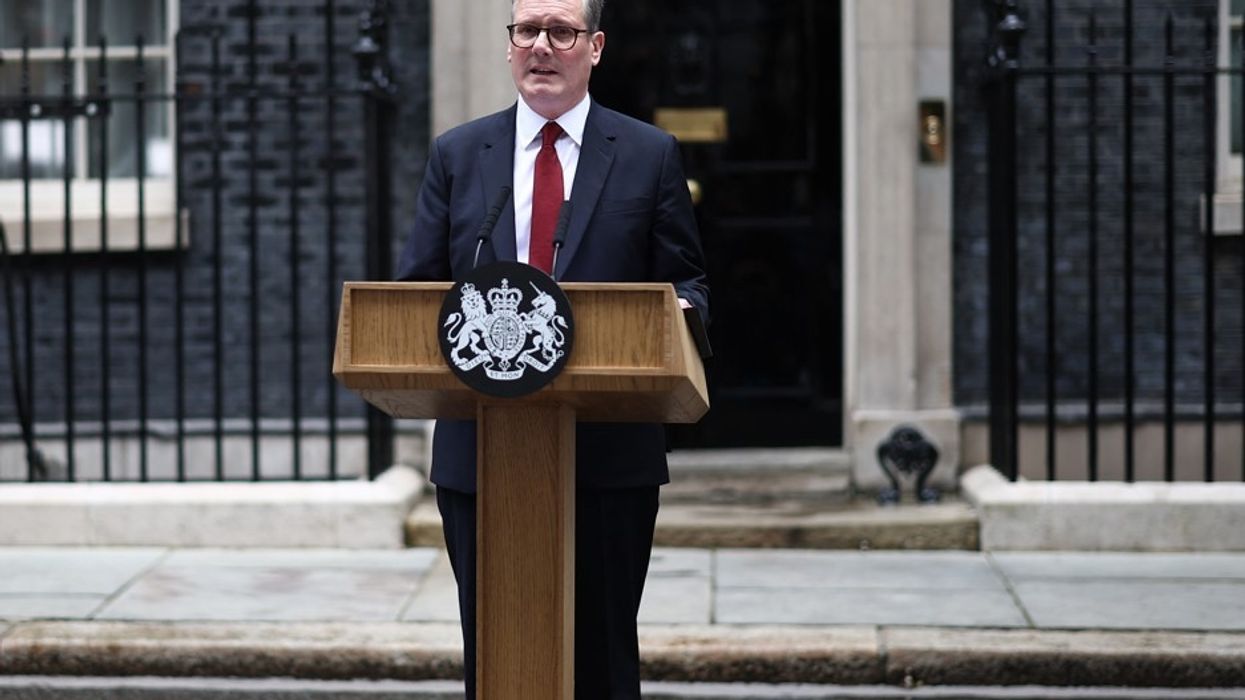Keir Starmer on Friday promised to "rebuild Britain" after his Labour party's landslide general election victory, ending 14 years of Conservative rule.
King Charles asked Starmer to form a government during a meeting at Buckingham Palace, officially appointing the 61-year-old former human rights lawyer as prime minister.
Crowds of Labour activists lined Downing Street as Starmer arrived as the party's first prime minister since Gordon Brown in 2010. "Now, our country has voted decisively for change, for national renewal and a return of politics to public service," he said. "The work of change begins immediately, but have no doubt, we will rebuild Britain."
Starmer began appointing his new cabinet, with Rachel Reeves becoming Britain's first female finance minister and David Lammy appointed foreign secretary. He paid tribute to his predecessor, Rishi Sunak's "dedication and hard work", saying his achievement as the first British Asian leader required "an extra effort that... should not be underestimated by anyone."
Starmer pledged to use his electoral majority to rebuild the country, aiming to take the heat out of politics after years of upheaval. Standing outside Number 10 Downing Street, he acknowledged the challenge ahead after Labour's landslide victory.
He warned that improvements would take time and he would need to rebuild faith in politics. "This lack of trust can only be healed by actions, not words," he said. "Whether you voted Labour or not, my government will serve you. Politics can be a force for good. We will show that."
Labour won a massive majority in the 650-seat parliament, leading to Rishi Sunak's resignation. Starmer emphasised his commitment to serve the country and deliver change. Labour secured over 410 seats, an increase of 211, while the Conservatives lost 250 lawmakers, including senior ministers and former prime minister Liz Truss.
Sunak's Conservatives suffered their worst performance in history due to a cost of living crisis, failing public services, and a series of scandals. "To the country, I would like to say first and foremost I am sorry," Sunak said, adding he would stay as Conservative leader until a replacement is appointed.
The results have upended British politics. The Tories won just 121 seats, a record low, with the right-wing vote split by Nigel Farage's Reform UK party. The Liberal Democrats ousted the Scottish National Party as the third-biggest party.
Congratulations came from European leaders, with French President Emmanuel Macron and German Chancellor Olaf Scholz expressing support for Starmer. Ukrainian President Volodymyr Zelensky said the two countries would "continue to be reliable allies."
Labour's resurgence is a turnaround from five years ago, when former leader Jeremy Corbyn led the party to its worst defeat since 1935. Starmer took over in early 2020, moving the party back to the centre and addressing infighting and anti-Semitism. Opinion polls consistently put Labour ahead of the Tories since Truss's resignation.
Starmer faces challenges, with economic growth anaemic, public services underfunded, and households financially squeezed. He has promised a return of political integrity after a chaotic period of Tory leadership.
(With inputs from AFP and Reuters)





